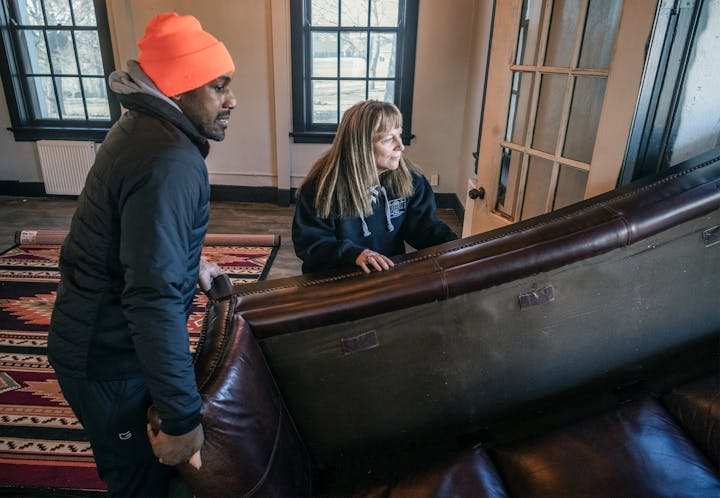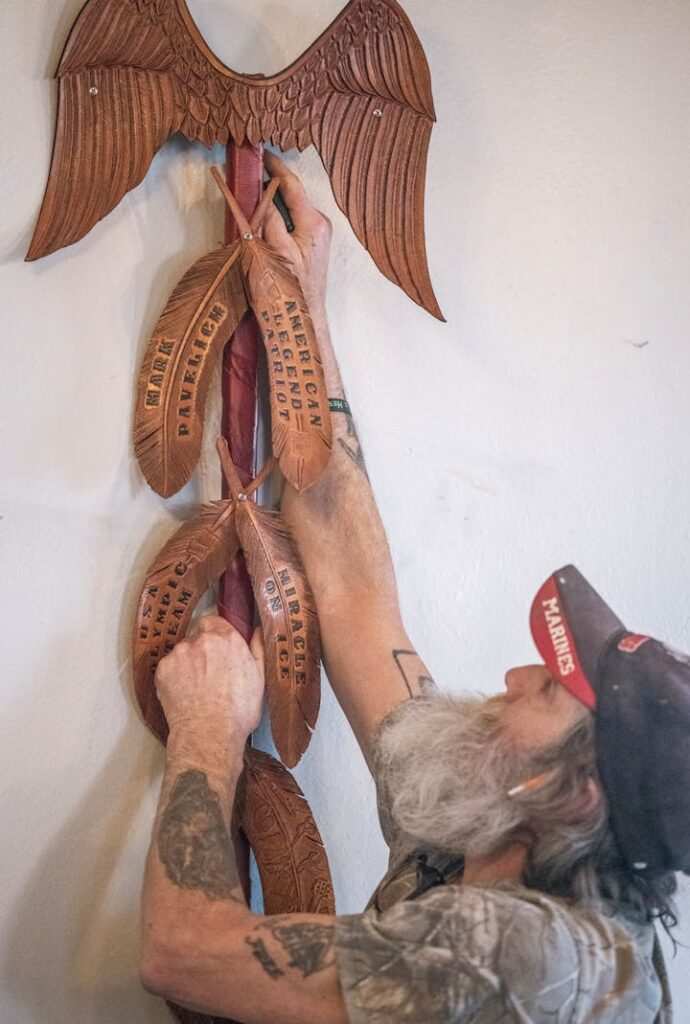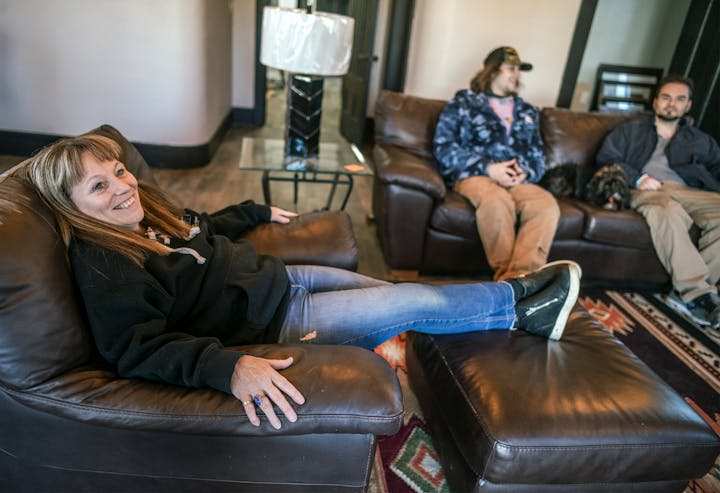In a serene central Minnesota setting, quieter but significant hockey miracles are realized, 44 years since Team USA’s historic hockey victory over the Soviet Union and capture of Olympic gold one game later.
The Ranch, a therapeutic residential getaway for former professional and college hockey players and others struggling with serious psychological challenges, is a haven of healing. It’s inspired by the sudden and tragic death three years ago of one of their own. Mark Pavelich’s dream, they say, is what made it all possible.
Pavelich, a product of the Iron Range, skated to stardom for Eveleth High School and the University of Minnesota Duluth on his way to the top of the Olympic podium as part of the “Miracle” squad at the 1980 Lake Placid Games. He died by suicide days after his 63rd birthday while in the midst of mental health troubles likely triggered by brain injures incurred during his hockey career.

He lived his final months at Eagle’s Healing Nest, a rural treatment facility in Sauk Centre that caters to the needs of military veterans. The Ranch, which held its grand opening ribbon-cutting ceremony in July, operates on a portion of property donated by the organization.
Pavelich’s psychological challenges upended his quiet life in near-seclusion along the sparsely populated North Shore, when he was charged with severely beating his neighbor after the two went fishing in August 2019. Pavelich lashed out on the unfounded belief that his neighbor had tried to poison him.
His sister, Jean Pavelich Gevik, has never doubted that Mark Pavelich’s many years of taking hard hits on the ice as a dogged but undersized forward left him with CTE, or chronic traumatic encephalopathy, a degenerative brain disease found in athletes, military veterans and others with a history of repetitive head trauma.

A judge found Pavelich temporarily unable to participate in his legal defense and put him in a secure state-operated psychiatric treatment center in St. Peter. From there, he was moved into the much safer and nurturing Eagle’s Healing Nest.
Gevik recalled when Pavelich called her from Eagle’s Healing Nest not long before his death and insisted that she get started establishing what would become the Ranch.
“He met me on Zoom and said, ‘Jean, set it up with Barry,’ ” Gevik recalled her brother pointing her to Barry Beck, a fellow New York Ranger in the NHL who also fought mental pressures due to his son’s murder in 2020. Beck is now the Ranch’s founder and director.

Along with his words, Pavelich sent his sister $50,000 in seed money for what would be called the Ranch.
It didn’t take long after her brother died when she realized, “He was hounding me because he was planning on taking his life,” Gevik said.
When Pavelich called his sister on his birthday, Feb. 28, 2021, “he didn’t sound all that well.”
Four days later, he was dead.
“He was such a good brother and created such a good family life,” Gevik said.
Pavelich’s relationship with Eagle’s Healing Nest, and ultimately the birth of the Ranch, nearly never came about before it could get started.
Ronn Tomassoni, a lifelong friend of Pavelich’s going back to their days playing squirt hockey as grade-schoolers, said there were questions raised internally about Pavelich moving into Eagle’s Healing Nest because he wasn’t a veteran.
The Nest’s leadership won over any doubters, however, by pointing out that Pavelich “served our country very well in 1980,” recalled Tomassoni, who is on the Ranch’s board of directors. “So the veterans welcomed him with open arms.”
From there, Pavelich soon envisioned taking a piece of Healing Eagle’s Nest land that wasn’t being used and dedicating it to this mission of “a place to treat and comfort hockey players with psychological difficulties,” said Tomassoni, who played Div. I college hockey and was Harvard’s head coach in the 1990s.
The Ranch has space for at least a dozen residents “who can stay as long as they need to stay,” Tomassoni said. They receive mental health treatment, group therapy and counseling in a setting that includes music, fishing at the onsite lake and horseback riding.
One testimonial that officials with the Ranch received was from a former NHLer who said the retreat saved him from succumbing to his troubles, some that he owned as being self-inflicted.
“On my arrival, meeting the caring staff from top to bottom was Incredible,” read the testimonial, submitted to the Star Tribune under the condition of anonymity. “The passion and the caring was exactly what I needed without and judgment of past mishaps.”
He went to say that “it really does start with your housemates, zero judging, and the love they show in your personal recovery is what helps. The group chats and stories shared between people really touched me and opened my eyes to believe I wasn’t alone anymore with my struggles.”
He closed with saying, “I can’t say enough about this place and the staff that make it happen. They will remain dear to my heart and to my kids for returning me to them.”
Contributions to the Ranch, a registered nonprofit, are welcome and can be made through its “Teammates For Life” campaign. In collaboration with the U.S. Hockey Hall of Fame Museum in Eveleth, Minn., donors are encouraged to visit https://theranchteammatesforlife.org/teammates-forever-hall-of-honor/, where they can honor a current or former teammate while submitting their donation.
___
© 2024 StarTribune
Distributed by Tribune Content Agency, LLC.



